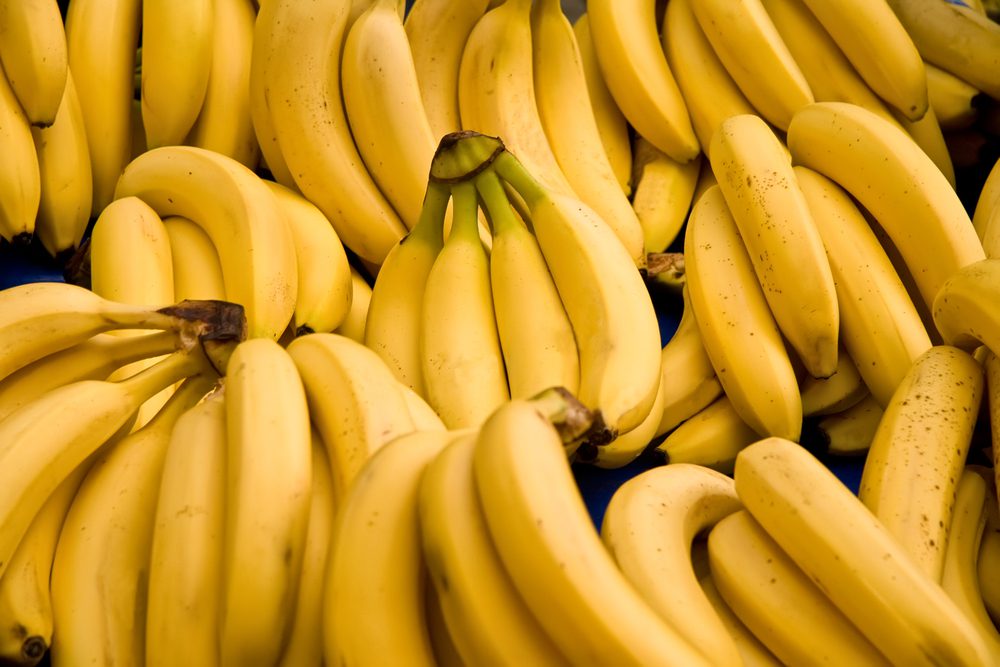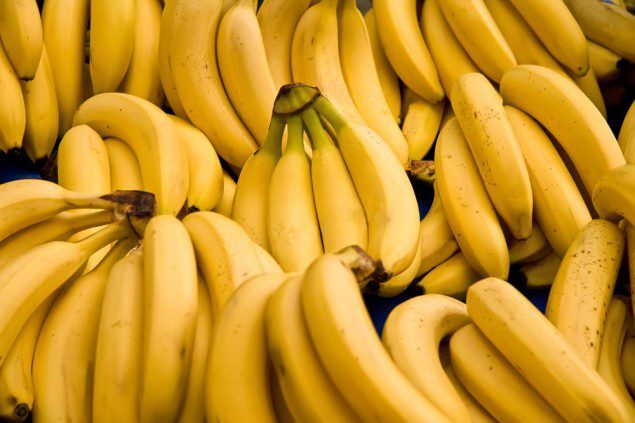Indian Seafarers Freed After Months of Detention at Yemen’s Ras Isa Port
India says it has secured the release of more than 150 seafarers who were stranded at Yemen’s Ras Isa Port, according to the Directorate General of Shipping. All 11 vessels...


(Bloomberg) — The secret to making money in shipping containers can be found in 8.4 billion bananas.
That’s how much of the fruit A.P. Moeller-Maersk A/S, the world’s biggest container line, moved last year. The company’s reliance on refrigerated boxes helped keep it profitable as the industry posted a second straight year of losses.
Moving perishable food in refrigerated containers is expected to grow an average of 4.5 percent a year until 2016, according to Drewry Maritime Equity Research, twice the pace forecast for ordinary boxes this year. Maersk and its rivals are seeking to move more goods in cooled containers — whose freight rates are 3.5 times higher — to offset losses from other goods.
“Transport of refrigerated goods is one bright spot for shipping lines,” said Jay Ryu, an analyst at Daewoo Securities Co. in Seoul. “Moving things like meat and wine will generate more earnings than wastepaper and hay.”
New cooling methods manufactured by United Technologies Corp. have helped Maersk to work with farmers in the Philippines and apple growers in New Zealand to transport fruits farther. Shipping lines are hauling $6 billion of computers and perishable goods in refrigerated boxes daily.
Furniture and construction material are the top two items by volume that the container line industry moves. Bananas are the biggest cargo moved by refrigerated containers, also known as reefers. Then comes frozen chicken, citrus, fish and dairy products. Some mobile phones and displays are also shipped in air conditioned boxes, according to United Technologies.
Global Population
The world’s 30 biggest container-shipping companies had a combined loss of $6 billion in 2011, and narrowed it to $239 million last year, according to market researcher Alphaliner.
Transport using refrigerated containers is expected to increase to 212 million tons in 2016 from 172 million tons in 2011 because global population is forecast to increase to 7.45 billion by then, according to shipping consultant Drewry.
“This forecast will have a direct effect on worldwide perishable reefer demand, particularly in the high-volume import regions such as Western Europe, North America and Asia,” said Rahul Kapoor, a Singapore based analyst at Drewry. Moving goods in cooled boxes gives companies more margins, he said.
In mid-March, it cost $1,700 to move a non-refrigerated forty-foot box to north Europe from Santos, Brazil, according to Drewry. In comparison, rates for frozen meat in a cooled container on the same route were about $5,000, and as much as $6,000 to Russia.
Philippine Bananas
Maersk has invested $1.9 billion in the reefer business since 2008, according to the company’s website. Maersk delivered 11.6 million tons of refrigerated cargo last year, using its 230,000 reefers — each capable of carrying 25 tons of chicken.
Every week, the company moves at least 1,000 boxes filled with bananas from the Philippines, said Thomas Knudsen, chief executive officer of Maersk Line’s Asia-Pacific operations.
Shares of Maersk gained 12 percent last year. Thirteen of the 31 analyst ratings on the company recommend investors buy the stock, according to data compiled by Bloomberg.
In comparison, shares of Singapore-based Neptune Orient Lines Ltd. — unprofitable in each of the past two years — rose 1.8 percent last year. Nine of 26 analyst ratings on the company recommend investors sell the stock.
Greenhouse Gas
With Maersk, CMA CGM SA, Hapag-Lloyd AG, NOL and other shipping lines all embracing this trade, demand for boxes and new technology is also rising.
UTC Climate, Controls & Systems, a unit of Hartford, Connecticut-based United Technologies, has developed a new container-cooling system that uses greenhouse gas to keep fruit and meat from getting spoilt.
That will replace industrially produced hydrofluorocarbons, one of the biggest causes of global warming, John Mandyck, the company’s chief sustainability officer, said in an interview in Singapore May 14. UTC — the world’s biggest maker of reefers — expects to start selling the new product called NaturaLine in the second half of this year.
Maersk also uses a technology that helps slow the aging process of the fruit, Knudsen said.
“In developing economies, about 50 percent of all vegetables and so on are lost during transportation because it’s poorly stored,” Knudsen said.
Maersk is now working in Papua New Guinea to haul tuna.
“With a world that has a growing population, and our land not growing, it’s important that we become more productive in how we manage our food supply,” said UTC’s Mandyck.

Sign up for gCaptain’s newsletter and never miss an update

Subscribe to gCaptain Daily and stay informed with the latest global maritime and offshore news


Stay informed with the latest maritime and offshore news, delivered daily straight to your inbox
Essential news coupled with the finest maritime content sourced from across the globe.
Sign Up